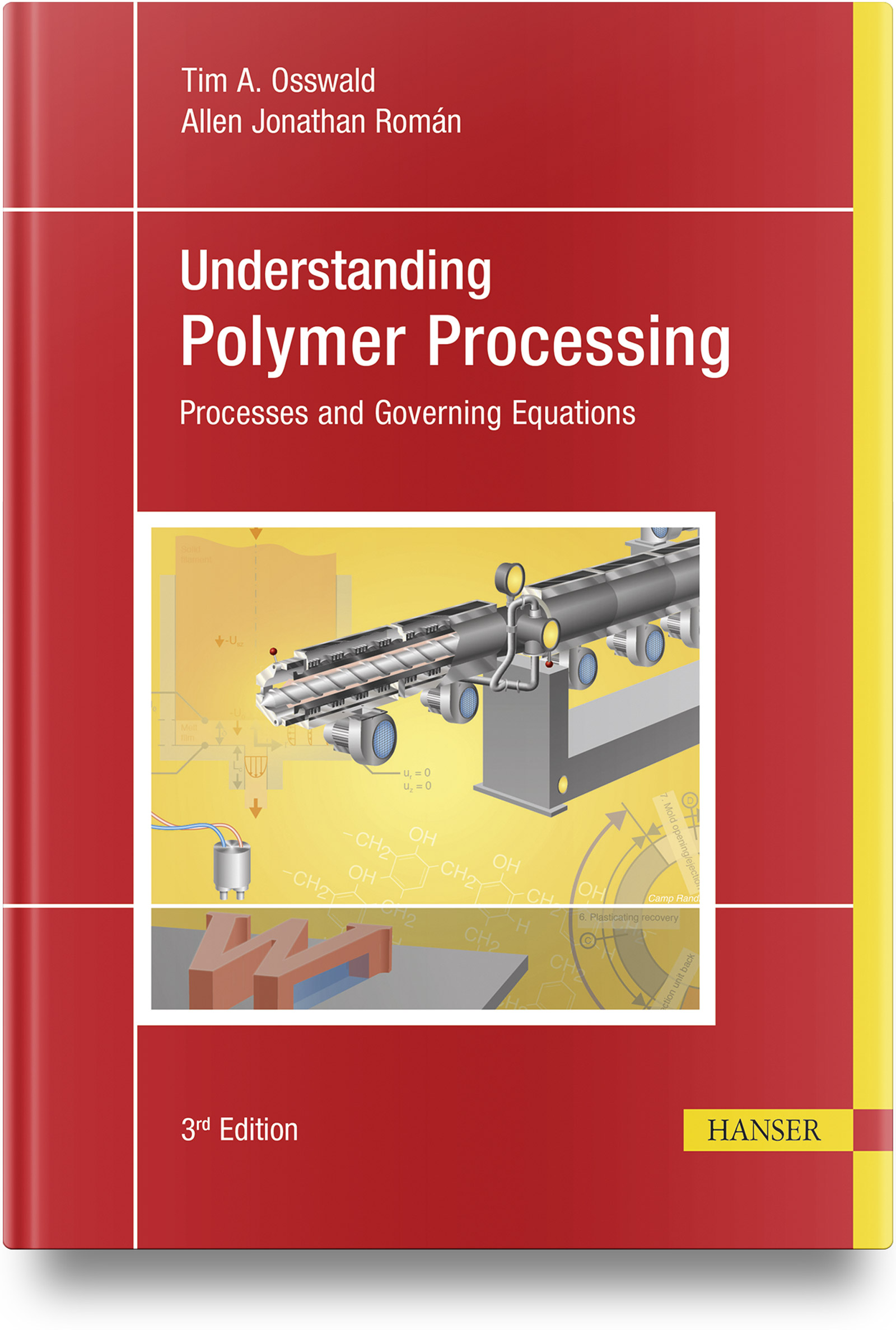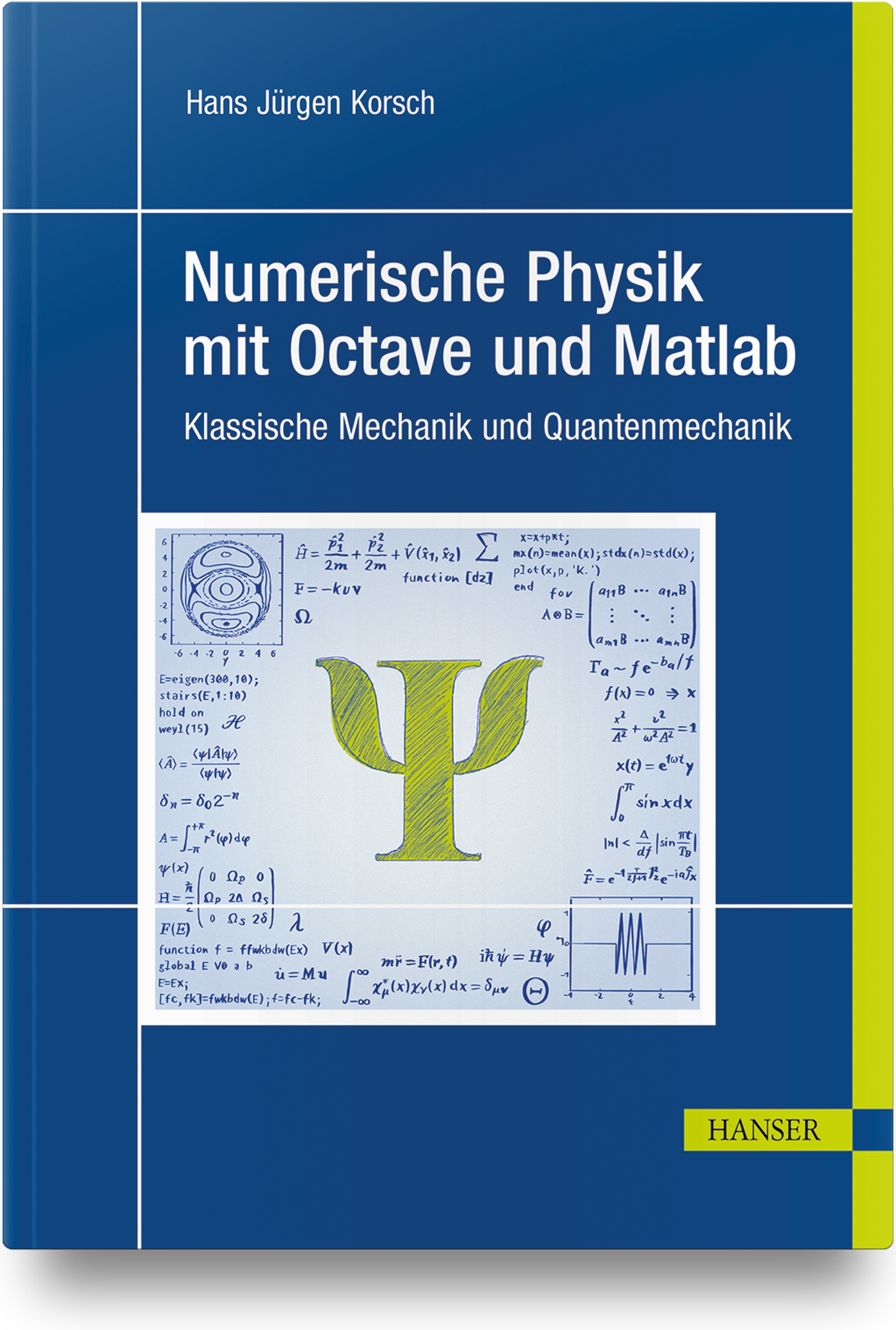- Sie sind hier:
- Fachbuch
- Kunststofftechnik
- Werkstoffe und Anwendungen
- Kunststoffe allgemein
- ISBN: 978-1-56990-567-8
- Buchangaben: 1. Edition, 11/2013
688 Pages,
- Basic Principles - covering historical background, basic material properties, molecular structure, and thermal properties of polymers.
- Influence of Processing on Properties - tying processing and design by discussing rheology of polymer melts, mixing and processing, the development of anisotropy, and solidification processes.
- Engineering Design Properties - covering the different properties that need to be considered when designing a polymer component - from mechanical properties to failure mechanisms, electrical properties, acoustic properties, and permeability of polymers.
A new chapter introducing polymers from a historical perspective not only makes the topic less dry, but also sheds light on the role polymers played, for better and worse, in shaping today's industrial world.
The first edition was praised for the vast number of graphs and data that can be used as a reference. A new table in the appendix containing material property graphs for several polymers further strengthens this attribute.
The most important change made to this edition is the introduction of real-world examples and a variety of problems at the end of each chapter.
- Basic Principles - covering historical background, basic material properties, molecular structure, and thermal properties of polymers.
- Influence of Processing on Properties - tying processing and design by discussing rheology of polymer melts, mixing and processing, the development of anisotropy, and solidification processes.
- Engineering Design Properties - covering the different properties that need to be considered when designing a polymer component - from mechanical properties to failure mechanisms, electrical properties, acoustic properties, and permeability of polymers.
A new chapter introducing polymers from a historical perspective not only makes the topic less dry, but also sheds light on the role polymers played, for better and worse, in shaping today's industrial world.
The first edition was praised for the vast number of graphs and data that can be used as a reference. A new table in the appendix containing material property graphs for several polymers further strengthens this attribute.
The most important change made to this edition is the introduction of real-world examples and a variety of problems at the end of each chapter.
Tim A. Osswald, Ph.D., is Kuo K. and Cindy F. Wang Professor at the University of Wisconsin-Madison College of Engineering and Honorary Professor of Plastics Technology at the University of Erlangen-Nuremberg and the National University of Colombia. He is the author of many books and book chapters, as well as over 100 papers in the field of plastics technology.
Prof. Dr.-Ing. Georg Menges ist emeritierter Professor an der RWTH Aachen.
Tim A. Osswald, Ph.D., is Kuo K. and Cindy F. Wang Professor at the University of Wisconsin-Madison College of Engineering and Honorary Professor of Plastics Technology at the University of Erlangen-Nuremberg and the National University of Colombia. He is the author of many books and book chapters, as well as over 100 papers in the field of plastics technology.
Prof. Dr.-Ing. Georg Menges ist emeritierter Professor an der RWTH Aachen.
You may use the cover files free of charge to promote the book.
You may use the cover files free of charge to promote the book.
Carl Hanser Verlag GmbH & Co KG
Kolbergerstr. 22
81679 München
E-Mail: info@hanser.de
Sicherheitshinweis entsprechend Art.9 Abs. 7 Satz 2 GPSR entbehrlich
Carl Hanser Verlag GmbH & Co KG
Kolbergerstr. 22
81679 München
E-Mail: info@hanser.de
Sicherheitshinweis entsprechend Art.9 Abs. 7 Satz 2 GPSR entbehrlich
























